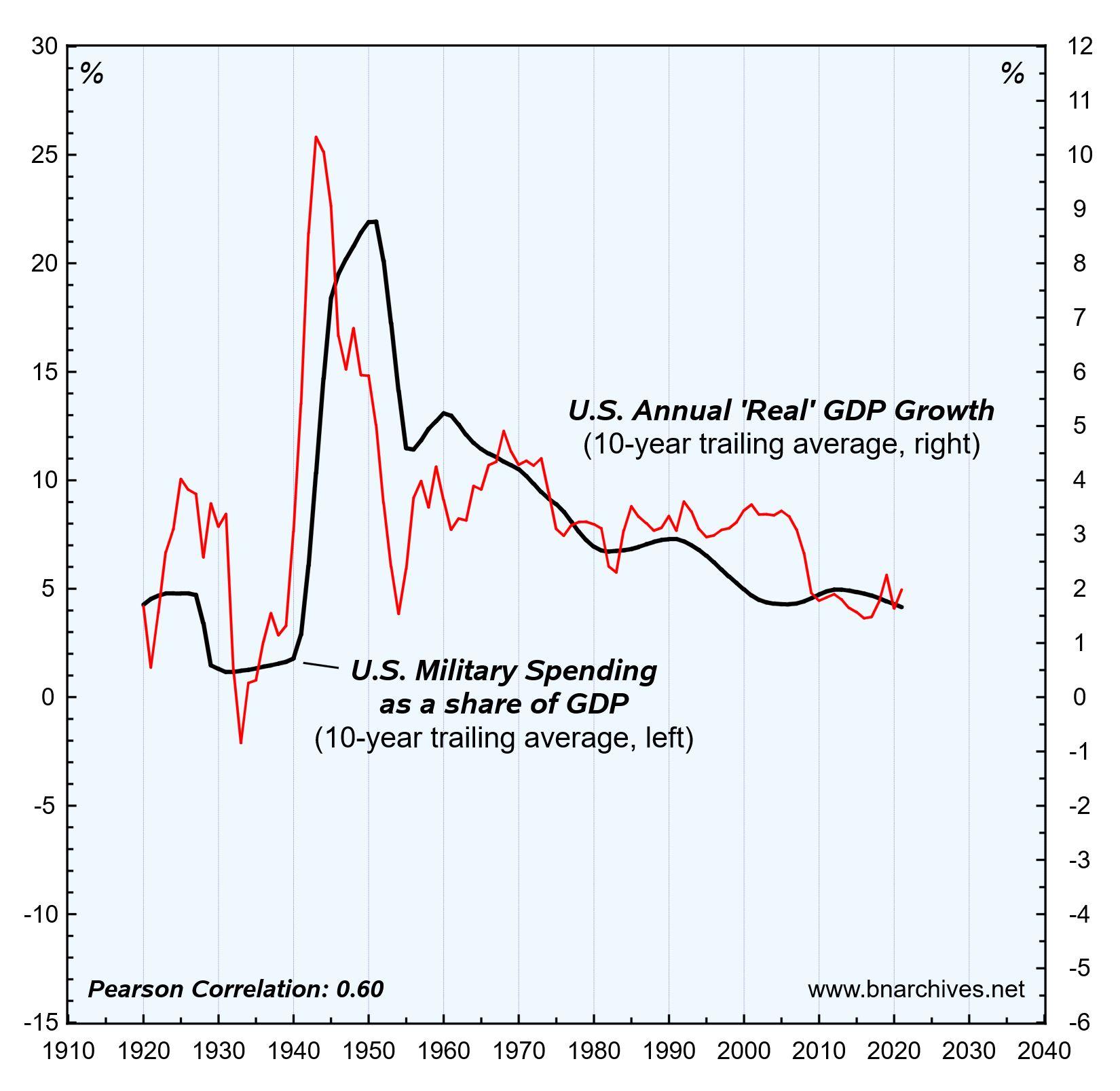- This topic has 4 replies, 3 voices, and was last updated January 25, 2022 at 12:28 pm by .
-
Topic
-
Military Spending and Economic Growth in the United States
A Note by Shimshon Bichler and Jonathan Nitzan
In their 1966 book, Monopoly Capital, Baran and Sweezy argued that oligopolistic capitalism is inherently stagnationary. Following the works of Michal Kalecki, Josef Steindl and Shigeto Tsuru, they claimed that monopoly capital creates a ‘tendency of the surplus to rise’; that left unattended, this tendency undermines aggregate demand and breeds stagnation; that the resulting stagnation can be offset only through massive wasteful spending that absorbs the rising surplus without creating more of it; and that the only sectors whose wasteful spending can be ‘justified’ on a large enough scale are finance and the military.
Our chart, updated till 2021, suggests that their prediction was right on target. The figure shows the relationship between U.S. ‘real’ economic growth and the share of military spending in U.S. GDP (both smoothed as 10-year trailing averages). The century-long correlation between the two series is +0.6: U.S. growth is tightly correlated with the relative magnitude of the country’s military waste.
References
Baran, Paul. A., and Paul M. Sweezy. 1966. Monopoly Capital. An Essay on the American Economic and Social Order. New York: Modern Reader Paperbacks.
Kalecki, Michal. 1964. [1972]. The Fascism of Our Times. In The Last Phase in the Transformation of Capitalism, edited by M. Kalecki. New York and London: Modern Reader, pp. 99-104.
Kalecki, Michal. 1967. [1972]. Vietnam and U.S. Big Business. In The Last Phase in the Transformation of Capitalism, edited by M. Kalecki. New York and London: Modern Reader, pp. 99-104.
Steindl, Josef. 1952. [1976]. Maturity and Stagnation in American Capitalism. New York: Monthly Review Press.
Steindl, Josef. 1979. [1984]. Stagnation Theory and Stagnation Policy. In The Faltering Economy. The Problem of Accumulation Under Monopoly Capitalism, edited by J. B. Foster and H. Szlajfer. New York: Monthly Review, pp. 179-197.
Tsuru, Shigeto. 1956. Has Capitalism Changed? In Has Capitalism Changed? An International Symposium on the Nature of Contemporary Capitalism, edited by S. Tsuru. Tokyo: Iwanami Shoten, pp. 1-66.
- You must be logged in to reply to this topic.

